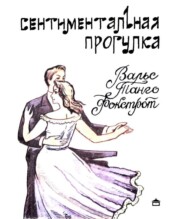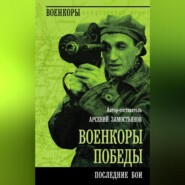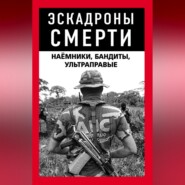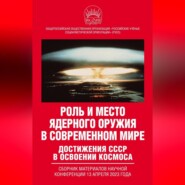По всем вопросам обращайтесь на: info@litportal.ru
(©) 2003-2024.
✖
Short-Stories
Настройки чтения
Размер шрифта
Высота строк
Поля
"Speak to him, if he'll answer you, and speak to him gently," said Little Mildred, settling the man in a chair. It seemed most improper to all present that Dirkovitch. should sip brandy as he talked in purring, spitting Russian to the creature who answered so feebly and with such evident dread. But since Dirkovitch appeared to understand, no man said a word. They breathed heavily, leaning forward, in the long gaps of the conversation. The next time that they have no engagements on hand the White Hussars intend to go to St. Petersburg and learn Russian.
"He does not know how many years ago," said Dirkovitch, facing the mess, "but he says it was very long ago, in a war, I think that there was an accident. He says he was of this glorious and distinguished regiment in the war."
"The rolls! The rolls! Holmer, get the rolls!" said Little Mildred, and the adjutant dashed off bareheaded to the orderly room where the rolls of the regiment were kept. He returned just in time to hear Dirkovitch conclude, "Therefore I am most sorry to say there was an accident, which would have been, reparable if he had apologized to our colonel, whom he had insulted."
Another growl, which the colonel tried to beat down. The mess was in no mood to weigh insults to Russian colonels just then.
"He does not remember, but I think that there was an accident, and so he was not exchanged among the prisoners, but he was sent to another place – how do you say? – the country. So, he says, he came here. He does not know how he came. Eh? He was at Chepany[29 - 63:2 Chepany. Town in Siberia.]" – the man caught the word, nodded, and shivered – "at Zhigansk[30 - 63:4 Zhigansk. Town in Siberia.] and Irkutsk[31 - 63:4 Irkutsk. Province and city in Siberia.]. I cannot understand how he escaped. He says, too, that he was in the forests for many years, but how many years he has forgotten – that with many things. It was an accident; done because he did not apologise to our colonel. Ah!"
Instead of echoing Dirkovitch's sigh of regret, it is sad to record that the White Hussars livelily exhibited unchristian delight and other emotions, hardly restrained by their sense of hospitality. Holmer flung the frayed and yellow regimental rolls on the table, and the men flung themselves atop of these.
"Steady! Fifty-six – fifty-five – fifty-four," said Holmer. "Here we are. 'Lieutenant Austin Limmason —missing.' That was before Sebastopol[32 - 63:17 Sebastopol. Seaport in Russia.]. What an infernal shame! Insulted one of their colonels, and was quietly shipped off. Thirty years of his life wiped out."
"But he never apologized. Said he'd see him – first," chorussed the mess.
"Poor devil! I suppose he never had the chance afterward. How did he come here?" said the colonel.
The dingy heap in the chair could give no answer.
"Do you know who you are?"
It laughed weakly.
"Do you know that you are Limmason – Lieutenant Limmason, of the White
Hussars?"
Swift as a shot came the answer, in a slightly surprised tone, "Yes, I'm Limmason, of course." The light died out in his eyes, and he collapsed afresh, watching every motion of Dirkovitch with terror. A flight from Siberia may fix a few elementary facts in the mind, but it does not lead to continuity of thought. The man could not explain how, like a homing pigeon, he had found his way to his own old mess again. Of what he had suffered or seen he knew nothing. He cringed before Dirkovitch as instinctively as he had pressed the spring of the candlestick, sought the picture of the drum-horse, and answered to the Queen's toast. The rest was a blank that the dreaded Russian tongue could only in part remove. His head bowed on his breast, and he giggled and cowered alternately.
The devil that lived in the brandy prompted Dirkovitch at this extremely inopportune moment to make a speech. He rose, swaying slightly, gripped the table edge, while his eyes glowed like opals, and began: – "Fellow-soldiers glorious – true friends and hospitables. It was an accident, and deplorable – most deplorable." Here he smiled sweetly all round the mess. "But you will think of this little, little thing. So little, is it not? The czar! Posh! I slap my fingers – I snap my fingers at him. Do I believe in him? No! But the Slav who has done nothing, him I believe. Seventy – how much? – millions that have done nothing – not one thing. Napoleon was an episode." He banged a hand on the table. "Hear you, old peoples, we have done nothing in the world – out here. All our work is to do: and it shall be done, old peoples. Get away!" He waved his hand imperiously, and pointed to the man. "You see him. He is not good to see. He was just one little – oh, so little – accident, that no one remembered. Now he is That. So will you be, brother-soldiers so brave – so will you be. But you will never come back. You will all go where he has gone, or" – he pointed to the great coffin shadow on the ceiling, and muttering, "Seventy millions – get away, you old people," fell asleep.
"Sweet, and to the point," said Little Mildred. "What's the use of getting wroth? Let's make the poor devil comfortable."
But that was a matter suddenly and swiftly taken from the loving hands of the White Hussars. The lieutenant had returned only to go away again three days later, when the wail of the "Dead March" and the tramp of the squadrons told the wondering station, that saw no gap in the table, an officer of the regiment had resigned his new-found commission.
And Dirkovitch – bland, supple, and always genial – went away too by a night train. Little Mildred and another saw him off, for he was the guest of the mess, and even had he smitten the colonel with the open hand the law of the mess allowed no relaxation of hospitality.
"Good-by, Dirkovitch, and a pleasant journey," said Little Mildred.
"Au revoir[33 - 65:26 Au revoir. Till we meet again.] my true friends," said the Russian.
"Indeed! But we thought you were going home?"
"Yes; but I will come again. My friends, is that road shut?" He pointed to where the north star burned over the Khyber Pass.
"By Jove! I forgot. Of course. Happy to meet you, old man, any time you like. Got everything you want, – cheroots, ice, bedding? That's all right. Well, au revoir, Dirkovitch."
"Um," said the other man, as the tail-lights of the train grew small.
"Of – all – the – unmitigated[34 - 66:6 unmitigated. As bad as can be.]– "
Little Mildred answered nothing, but watched the north star, and hummed a selection from a recent burlesque that had much delighted the White Hussars. It ran: —
"I'm sorry for Mister Bluebeard,
I'm sorry to cause him pain;
But a terrible spree there's sure to be
When he comes back again."
BIOGRAPHICAL REFERENCES
Essays on Modern Novelists, William Lyon Phelps.
A Kipling Primer, Knowles.
Rudyard Kipling, Richard Le Galliene.
"Kipling to French Eyes," Bookman, 26: 584.
"Life of Kipling," _Encyclopaedia Britannica.
"Life of Kipling," The Universal Encyclopedia.
BIOGRAPHY
Rudyard Kipling, the most vigorous, versatile, and highly endowed of the present-day writers of fiction, was born in Bombay, India, December 30, 1865. His place of birth and extensive travelling make him more Anglo-Saxon than British. His father was for many years connected with the schools of art at Bombay and Lahore in India. His mother, Alice MacDonald, was the daughter of a Methodist clergyman.
Kipling was brought to England when he was five years old to be educated. While in college at Westward Ho he edited the College Chronicle. For this paper he contributed regularly, poetry and stories. After his school days and on his return to India, he served on the editorial staff of the Lahore Civil and Military Gazette from 1882 to 1887, and was assistant editor of the Pioneer at Allahabad from 1887 to 1889.
Kipling has travelled extensively. He is at home in India, China, Japan, Africa, Australia, England, and America. The odd part about his realistic observations, however, is that his notes, whether written about California or India, are often repudiated by the people whom he has visited. After visiting England and the United States in a vain effort to find a publisher for his writings, he returned to India and published in the Pioneer his American Notes, which were immediately reproduced in book form in New York in 1891.
He married Miss Balestier of New York in 1892. They settled at Brattleboro, Vermont, immediately after their marriage and lived there until 1896. Kipling revisited the United States in 1899. While on this trip he suffered a severe attack of pneumonia which brought out a demonstration of interest from the American people that clearly showed their appreciation of him as a man and a writer.
CRITICISMS
Kipling is journalistic in all his writings. Oftentimes his material is very thin, flippant, and sensational, but he always is interesting, for he possesses the expert reporter's unerring judgment for choosing the essentials of his situation, character, or description, that catch and hold the reader's attention. In his earlier writings, like Plain Tales from the Hills or The Jungle Books, the radical racial differences between his characters and readers, and the background of primitive, mysterious India caught the reading world and instantly established Kipling's fame.
His technique is brilliant, his wit keen, and his energy of the bold and dashing military type. This audacious energy leads him very often into sprawling situations, a worship of imperialism, and reckless statements concerning moral and spiritual laws. Unlike Bret Harte, who was in many respects one of Kipling's ideals, he leaves his bad and coarse characters disreputable to the end. This is due in a large measure to the lack of warmth and light in his writings. In contradiction to this type of his works his William the Conqueror and An Habitation Enforced are filled with a gentle-human sympathy that causes us to forget and forgive any vulgarity he may have used in his more primitive and coarse characters. Even Kipling partisans must sometimes wish that Kipling's vision were not so dimmed by the British flag and that he might forget for a time the British soldier he loves so ardently.
His writings since 1899 are much more mechanical than his earlier works. He seems, at times, to resort to the orator's superficial tricks in his attempts to attract readers. The Athenaeum, a friendly organ, says of his later work: "In his new part – the missionary of Empire – Mr. Kipling is living the strenuous life. He has frankly abandoned story telling, and is using his complete and powerful armory in the interests of patriotic zeal."
Whatever may be the final judgment of the world concerning Kipling's claim to literary genius, the young student may rest assured that there is no one in England who can compare with this strenuous and versatile writer. He is original and powerful, interesting and realistic. He is a lover of the men who earn their bread by the sweat of their faces and a despiser of "flannelled fools." He lacks the day-dreams of Stevenson and preaches from every housetop the gospel of virile, acting morality. Many of his readers have criticised adversely his spiritual teachings, because of the furious energy with which he denounces an apathetic religion and eulogizes the person who works with all his might, day after day, for the highest he knows and never fears the day of death and judgment.
GENERAL REFERENCES
The Book of the Short Story, Alexander Jessup.
The Short Story in English, Henry Seidel Canby.

















